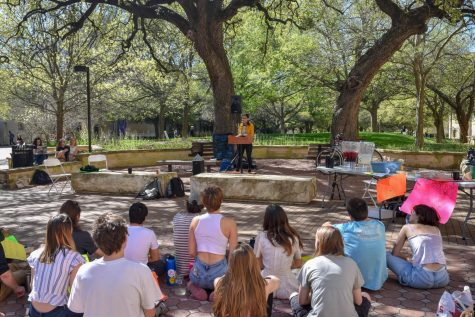Recurring network outages cause frustrations
On Sept. 5, computer labs around campus were dark and deserted. Students and professors alike struggled to go about their daily routines because they rely on access to Wi-Fi and online resources. Campus was in a state of confusion.
As early as Aug. 29, server complications slowed down the St. Edward’s network. What started as a technical hiccup quickly turned into a campus-wide crisis, culminating in the server outages on Sept. 5, which began around 8 a.m. and were not fully resolved until 7 p.m., according the St. Edward’s Computer Help Desk’s Twitter. During this time, services like Blackboard, Edweb, Edshare and Zimbra were unavailable. Additionally, students, faculty and staff experienced difficulty even connecting to the Internet.
But the Sept. 5 outages were not the end of the computer problems on campus. Zimbra and Blackboard were down again on Sept. 7 for a short period.
The Computer Help Desk maintains a Twitter feed in addition to a newsfeed on their “Think” page on the St. Edward’s website. These feeds are intended to give students updates on the status of the campus computer network, especially during computer crises. Unfortunately, for those relying on the campus internet, these updates were unreachable.
The recent service outages have illuminated just how much students and faculty at St. Edward’s rely on services like Zimbra, Blackboard and Edweb. Students and faculty also rely heavily on the campus Wi-Fi. When these computer services are unavailable, tasks that were once effortless become frustrating.
It is fair to say that we have become extremely dependent on our campus network. It is a facet of our education that we have come to expect. When our expectations are not met, education can no longer run smoothly. When Zimbra is unavailable, it becomes difficult for students to contact professors or each other. Important correspondence may not happen on time because e-mail is unavailable.
Talking in person may seem like an obvious solution, but finding a professor at a moment’s notice does not seem feasible when students are used to the immediacy of the Internet. Many students do not keep hard copies of syllabi for their classes, so they might forget the location or time of a professor’s office hours without Blackboard.
Moreover, St. Edward’s has recently pushed faculty to use less paper, relying more on online resources than on paper copies. But if students and faculty cannot access online resources, a lack of paper copies makes things much more difficult. It would be practically impossible to run a class without paper or online resources.
In order to prevent future Internet woes, St. Edward’s Digital Infrastructure team continues to work towards network stability. However, the frequent outages of resources like Blackboard and Zimbra continue to exacerbate current technological problems. The Computer Help Desk’s Twitter feed demonstrates the constant state of flux within the computer network. One tweet says online resources are available then the next says resources are unavailable.
With students and faculty relying on Wi-Fi and online resources, St. Edward’s IT department should have anticipated problems at the beginning of the semester, and there should be a better chain of communication to let students and staff know about the state of the Internet.
The Sept. 5 service outages lasted the entire school day, throwing a wrench in most students’ and professors’ schedules. If the outages had been fixed earlier, the interruption of daily activity would have been less intense. The St. Edward’s community simply cannot function without a reliable system of online resources and network access.


![According to a 1993 archive from Congressional Quarterly Almanac, “[Judge] Ginsburg was known as a restrained and fair-minded judge who did her homework and then some.” She was “considered moderate to conservative on criminal issues and business law,” relatively progressive “on issues such as free speech, religious freedom and separation of church and states,” and more liberal on “civil rights and access to the courts.”](https://www.hilltopviewsonline.com/wp-content/uploads/2020/10/VP-4RBG_CC-by-WFULawSchool-475x317.jpg)




